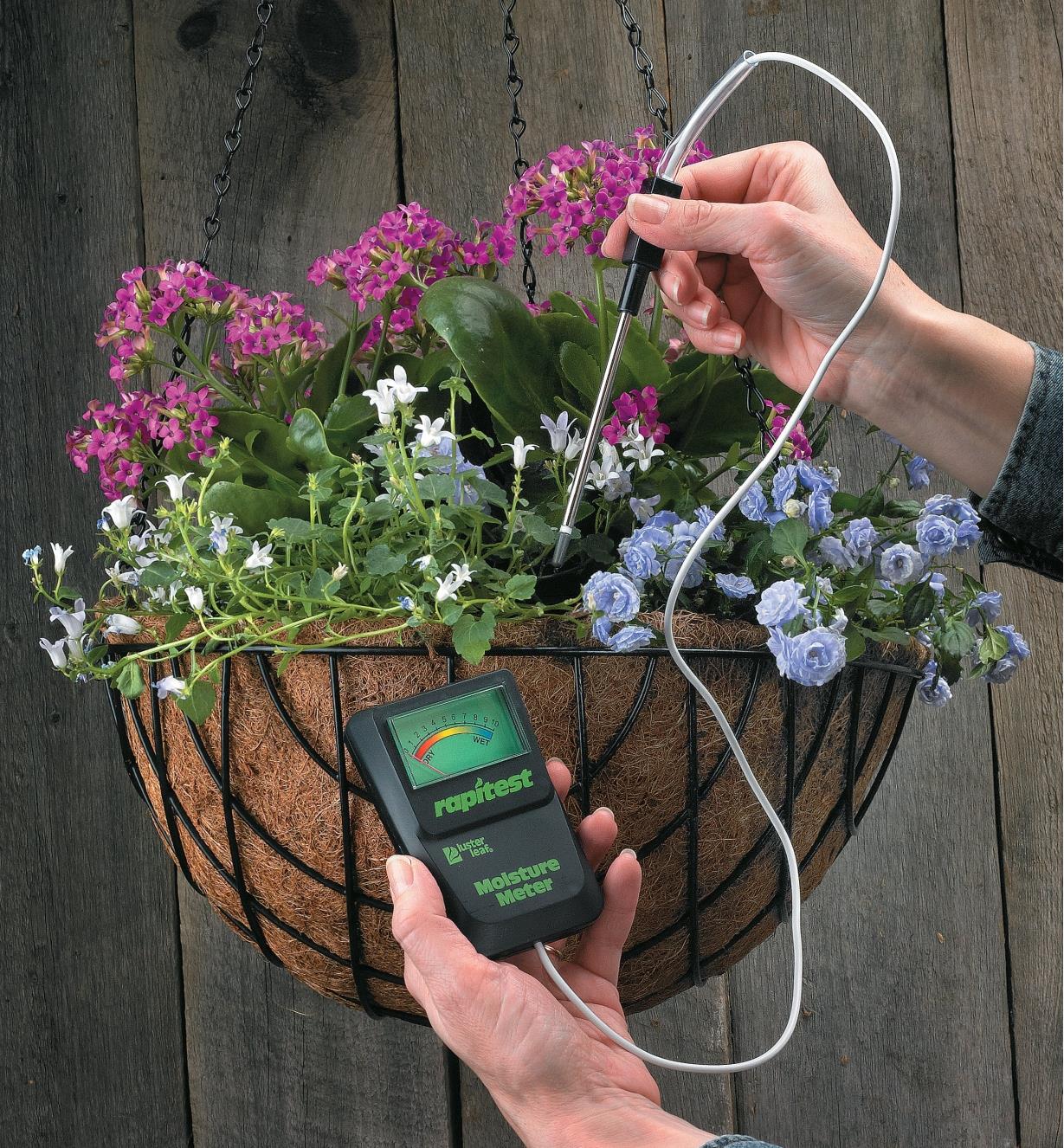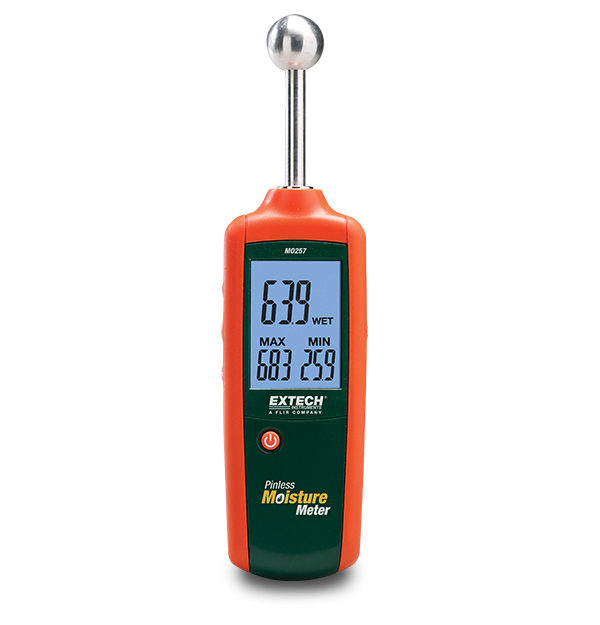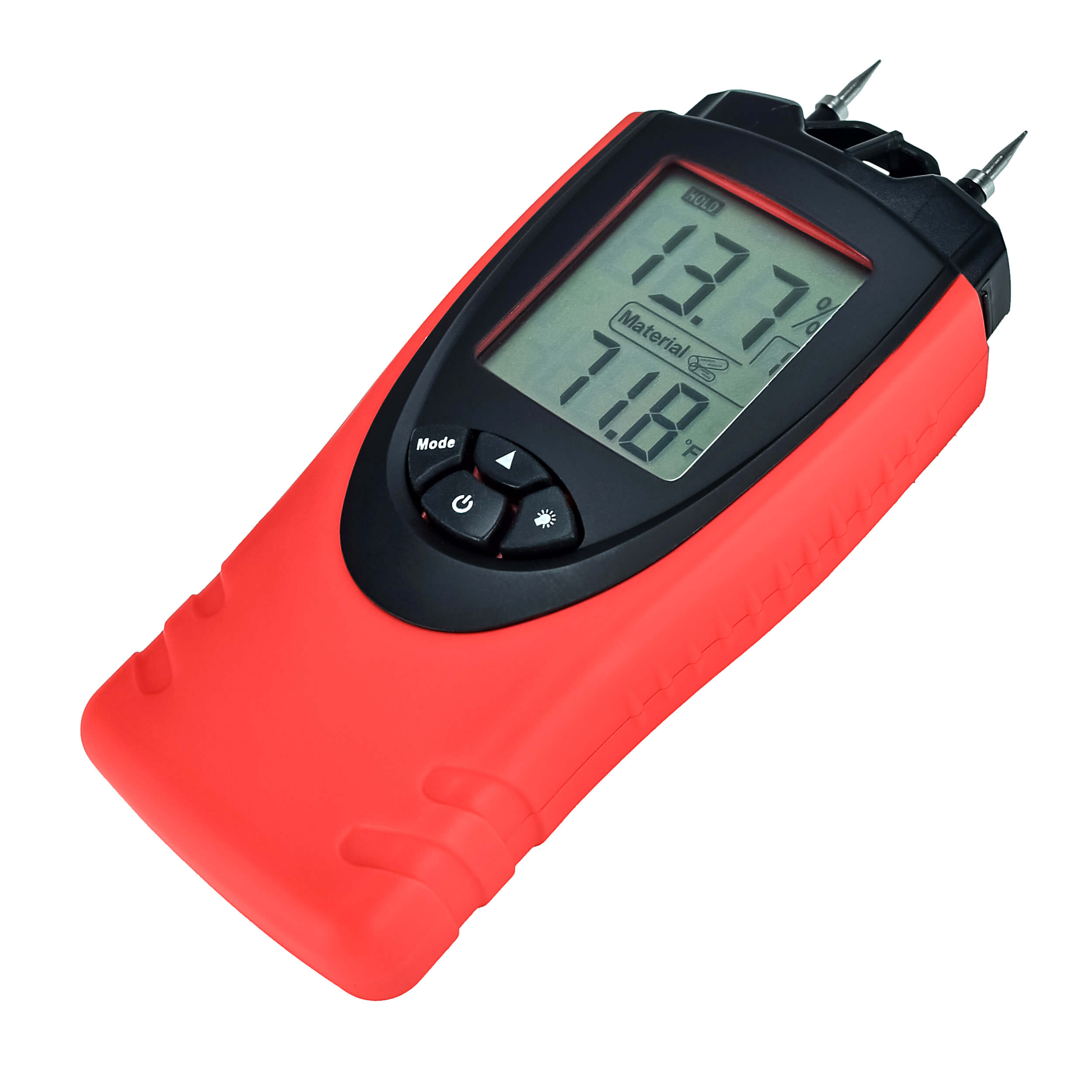The Science Behind Moisture Meters: Just How They Work and Why They're Essential
The Science Behind Moisture Meters: Just How They Work and Why They're Essential
Blog Article
The Ultimate Overview to Moisture Meters: A Comprehensive Overview and How They Can Conserve You Cash
In the world of building upkeep, building and construction, and various markets, the importance of precisely measuring moisture levels can not be overstated. Dampness meters act as indispensable devices in spotting and monitoring moisture content in materials, assisting in protecting against expensive damages and making certain the quality of products. Understanding the nuances of different kinds of moisture meters, their applications, and the prospective cost-saving advantages they offer can be a game-changer for organizations and experts alike. Uncovering how these gadgets can not only streamline processes yet likewise add to monetary cost savings is a journey worth getting started on.
Kinds of Moisture Meters
Numerous types of dampness meters are available for various applications in different industries. One usual type is the pin-type wetness meter, which determines the electrical resistance in between 2 pins inserted right into a product. This type is suitable for timber, drywall, and various other building materials. Pinless dampness meters, on the various other hand, usage electromagnetic sensing unit plates to check a bigger location without causing damages to the material's surface area. These meters are optimal for swiftly assessing wetness degrees in large areas such as floorings and wall surfaces.
In addition, there are likewise specialty moisture meters developed for particular materials like hay, soil, or grain. These meters offer accurate dampness analyses customized to the special homes of the material being examined. Infrared wetness meters determine the thermal residential properties of a product to determine its wetness content non-invasively, making them valuable for applications where pin or pinless meters might not appropriate. Comprehending the various kinds of wetness meters offered can aid markets select the most appropriate tool for their details moisture dimension needs.

Advantages of Using Moisture Meters

Furthermore, using moisture meters can lead to boosted power effectiveness. In farming settings, dampness meters play a vital duty in maximizing crop yields by allowing farmers to keep an eye on dirt wetness degrees and make informed irrigation choices.
How to Pick the Right Moisture Meter
Choosing the suitable dampness meter involves taking into consideration key variables such as product compatibility, measurement array, and calibration precision. When picking a wetness meter, it's important to ensure that the meter is appropriate for the particular product you will certainly be testing. Various materials have differing electric homes that can affect wetness analyses, so picking a meter designed for your material is vital for accurate results. In addition, think about the measurement variety of the wetness meter. Guarantee that the meter can identify wetness degrees within the array needed for your applications. Calibration accuracy is an additional crucial factor to maintain in mind (Moisture Meter). Decide for a wetness meter with trusted calibration to make certain precise and regular readings. Some meters may need regular calibration changes, so recognizing the calibration procedure is essential. By carefully evaluating these variables, you can select a moisture meter that meets your demands and supplies precise dampness measurements for your projects.
Appropriate Techniques for Moisture Meter Use
To make certain precise moisture readings and maximize the performance of a dampness meter, using proper methods is necessary. When utilizing a pin-type dampness meter, insert the pins or probes into the material being checked till they make complete contact. By following these appropriate strategies, individuals can rely on their dampness meter to provide trustworthy wetness degrees, helping in preventing pricey damage or ensuring quality in different applications.

Cost Financial Savings Via Moisture Meter Applications
How can the calculated utilization of wetness meters result in significant price savings across various industries? Moisture meters play a crucial function in price financial savings by protecting against potential damage and guaranteeing quality assurance in various markets. In the farming industry, dampness meters help in identifying the ideal time for gathering crops, stopping over-drying or excess moisture that can impact the end product's top quality. This specific surveillance assists farmers avoid unneeded losses and optimize their return.

In addition, in the food processing market, wetness meters are important for checking item try this website top quality and making certain compliance with safety and security laws. By accurately gauging moisture web content in food, producers can protect against spoilage, keep quality, and lower waste, resulting in substantial price savings. In general, the strategic application of wetness meters is an important investment that can bring about considerable expense reductions and enhanced effectiveness throughout different industries.
Final Thought
To conclude, moisture meters are beneficial tools for gauging and finding moisture degrees in different products. By utilizing the ideal dampness meter and following proper methods, users can efficiently stop costly problems brought on by excess wetness. Buying a high quality moisture meter can result in considerable expense savings in the lengthy run by determining potential problems at an early stage and enabling timely remediation. Inevitably, dampness meters are necessary instruments for keeping the stability and long life of frameworks and products.
Dampness meters serve as crucial tools in identifying and keeping an eye on moisture web content in materials, assisting in stopping pricey damages and making sure the quality of products. Infrared dampness meters determine the thermal residential or commercial properties of a material to determine its wetness content non-invasively, making them helpful for applications where pin or pinless meters may not be ideal.Moisture meters use invaluable benefits in precisely checking and analyzing wetness degrees in diverse materials blog here and settings. In agricultural setups, dampness meters play an important role in maximizing crop returns by enabling farmers to monitor dirt dampness degrees and make educated irrigation choices.In conclusion, moisture meters are important tools for measuring and discovering dampness levels in numerous products.
Report this page